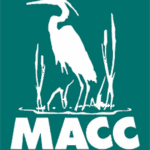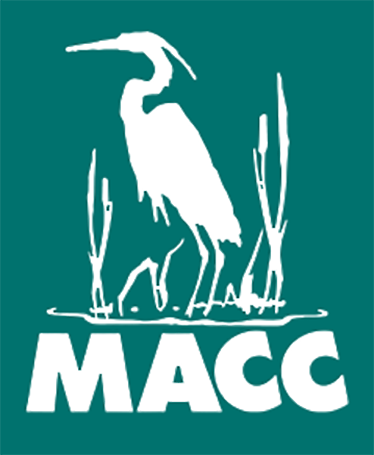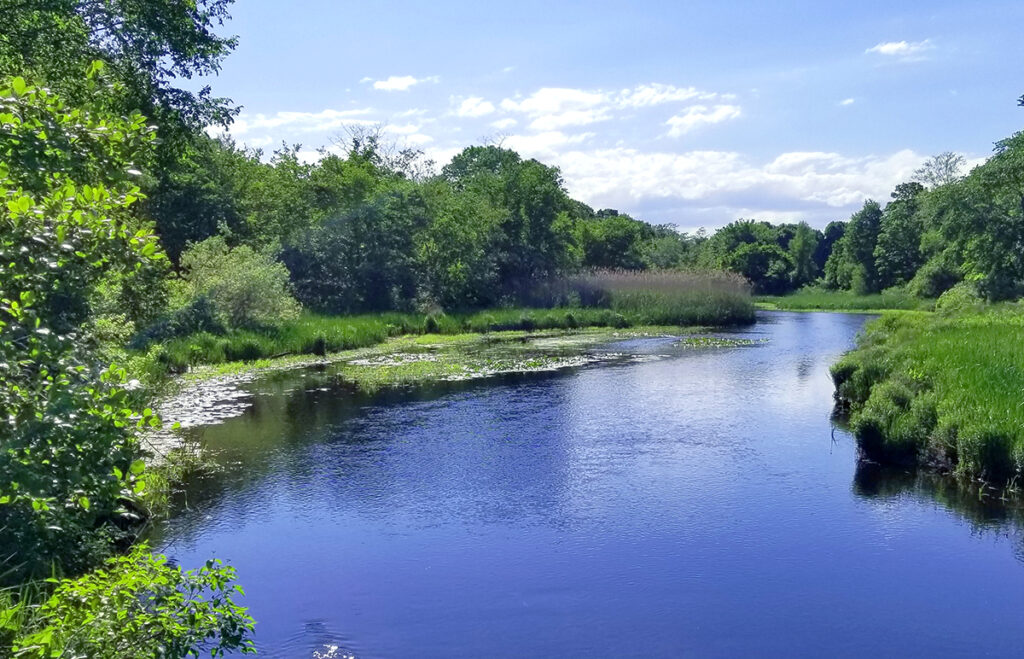
By Dorothy McGlincy and Jeffrey North
Belmont is home to the Massachusetts Association of Conservation Commissions (MACC), a vital nonprofit organization dedicated to protecting Massachusetts’s natural resources by supporting conservation commissions across the Commonwealth. Since its founding in 1961, MACC has been a cornerstone of environmental advocacy, providing resources, training, and support to the state’s 351 conservation commissions and promoting the protection of natural resources for future generations. MACC is headquartered at Mass Audubon’s Habitat property on Juniper Road.
A mission rooted in conservation
At its core, MACC’s mission is to assist and empower local conservation commissions, which serve as the frontline defenders of natural resources in their communities. Established under the Massachusetts Conservation Commission Act of 1957, these commissions play a critical role in preserving wetlands and maintaining open spaces. MACC’s work ensures that these volunteer-led bodies are equipped to enforce state and local environmental regulations effectively and sustainably.
Core activities of MACC
Education and training
MACC has a wide variety of educational programs which are designed to strengthen the expertise of Conservation Commission members and other stakeholders. MACC trains more than 2,000 participants every year on wetland regulations, stormwater management, and conservation land management.
- Fundamentals for Conservation Commissioners
A flagship certificate training series that provides a strong foundation for new commissioners and others interested in wetlands protection. Classes are focused on a wide variety of topics, including understanding the types of wetlands resources in Massachusetts; writing effective orders of condition; understanding site maps and how to conduct a site visit; protecting wildlife habitat; open space planning and protection; and stormwater requirements for wetlands protection. - Workshops and Conferences
MACC hosts an annual environmental conference, the largest gathering of conservation professionals in New England. The annual conference features more than 30 expert-led workshops on issues such as climate resilience, wetlands protection, stormwater management, and land stewardship. The conferences and training programs are open to the public. - Free Lunch & Learn Webinars
Monthly lunchtime webinars are offered on current topics such as invasive plants, vernal pools, solar siting, native plants for pollinators, stormwater management, the endangered species act, and protecting wildlife from rodenticides. - Online Resources
MACC provides guides, fact sheets, and webinars on evolving environmental policies, ensuring that commissioners stay informed about best practices.
Advocacy and policy support
MACC is a strong voice in state-level environmental policy, advocating for laws and regulations that enhance wetlands, open space, and natural resource protection. The organization collaborates with many other environmental partners, state agencies, and legislators to strengthen water, wetland, and climate-resilient programs to ensure the programs are robust enough to address modern challenges such as climate change and urbanization.
Technical assistance
Conservation commissions often encounter complex environmental challenges, from permitting disputes to wetland restoration projects. MACC serves as a trusted advisor, offering guidance on the commission’s authority and responsibilities, administering the Wetlands Protection Act and regulations, and suggesting ways to run effective meetings.
Community engagement
Recognizing that conservation success depends on public awareness, MACC works to educate the public as well as the volunteer conservation commissioners about the importance of protecting wetlands and natural resources. Through outreach initiatives, the organization fosters a culture of environmental stewardship that extends beyond commission chambers. MACC staff and board members connect with high school students when assisting with the annual Envirothon competition. The next generation of environmental leaders can be seen in the Envirothon’s student environmental teams.
Adding value to communities
The all-volunteer conservation commission is the first line of environmental protection to local communities across the Commonwealth. By educating and empowering local conservation commissions, MACC helps local residents, with their “boots on the ground,” implement state Wetlands Protection Act regulations, allowing the state wetlands staff to focus on more complex projects. The educational opportunities MACC provides for commissioners mean their environmental decisions will be made with expertise and care. This benefits Massachusetts communities in several ways:
Protecting wetlands and water resources
Wetlands are vital ecosystems that provide flood control, water filtration, and habitat for wildlife. Through training and policy support, conservation commissions learn to protect wetland resource areas, enforce wetlands regulations and safeguard these critical areas.
Enhancing climate resilience
As Massachusetts faces increasing threats from rising sea levels and extreme weather, MACC’s training equips conservation commissions with tools to plan for climate resilience. This includes strategies that can preserve natural buffers that protect drinking water quality, enhance groundwater recharge, minimize stormwater runoff, and mitigate urban heat islands.
Preserving open spaces
Open spaces contribute to community well-being by offering recreational opportunities and promoting biodiversity. MACC supports efforts to identify and protect these areas so they remain accessible for future generations.
Looking ahead
As environmental protection challenges grow more complex, MACC’s educational and advocacy efforts remain as essential as ever. From protecting wetlands and open space, to combating invasive species and addressing climate change, Massachusetts communities will continue to rely on the expertise and advocacy of this Belmont-based nonprofit organization, and the hard work of their local conservation commission members and the commission staff.
For residents of Belmont and beyond, our conservation commissions serve as a reminder of the power of collective action of nonprofit associations and volunteer conservation commissioners working together to protect the natural world. By supporting the local conservation commissions that safeguard wetlands and open spaces, MACC helps ensure that Massachusetts remains a leader in environmental stewardship.
The Role of a Conservation Commissions in Massachusetts
Conservation commissions have two primary areas of responsibility in Massachusetts: to manage and protect a community’s natural resources, and to administer the Massachusetts Wetlands Protection Act. The Wetlands Protection Act is intended to ensure that work in or near wetlands will not alter them.
Commissions review and permit projects near wetlands, rivers, and other protected resource areas to ensure the projects do not harm these ecosystems. Whether it’s a small project like a new deck on a house or a large construction project, if the work is conducted within an area under the jurisdiction of the Wetlands Protection Act, the local conservation commission will evaluate the potential environmental impacts and work to mitigate them.
Conservation commissions often lead efforts to preserve open spaces, maintain trails, and promote environmental education. Many commissions collaborate with local land trusts, state agencies, and volunteers to acquire and manage conservation land, ensuring it remains protected for public enjoyment and ecological health.
Commissions also play a growing role in addressing climate change. They help communities minimize flooding from severe storms, protect wetlands, and promote nature-based solutions to enhance resilience.
Conservation commissions, typically composed of volunteer members appointed by the town or city, bring together residents committed to environmental stewardship. Commissions are guardians of a community’s natural assets, balancing development needs with the imperative to protect the environment for current and future generations.
Learn more about the Belmont Conservation Commission at www.belmont-ma.gov/1558/Conservation-Commission. See additional information about Massachusetts wetlands at www.mass.gov/guides/wetlands-information.
This article was prepared by Dorothy McGlincy, MACC executive director, and Jeffrey North, BCF managing editor.




Sorry, the comment form is closed at this time.